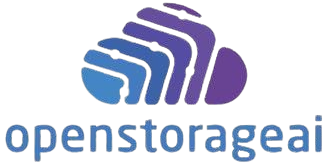AI is not only the future; it is already here and is changing the world in ways we never could have predicted. We’re witnessing rapid developments in AI-powered chatbots, self-driving cars, and even healthcare. However, as fascinating as this technology is, it also raises an important question: how can we make sure AI is moral, just, and advantageous for all?
Consider this: Every day, AI makes decisions that affect people’s lives. AI is used in a variety of processes, including loan approval, medical diagnosis, and even selecting what information to display on social media. However, what occurs if AI makes a mistake? Or when it inadvertently perpetuates prejudices in society? That’s precisely what this blog will be about.
So take a cup of coffee and let’s explore the globe.
AI’s Biggest Breakthroughs: How Far Have We Come?
1. The Rise of Conversational AI & NLP
Did you ever say to a chatbot, “Wow, this feels real?” during a conversation? This is due to the significant advancements in AI-powered natural language processing (NLP). Conversations that seem human can now be carried out by tools like ChatGPT, Google’s Bard, and even customer support bots.
The problem is that AI can only be as good as the data it is trained on. AI has the potential to reflect and even magnify biases in that data. For this reason, businesses must actively seek to eradicate prejudice and be open about their training data.
2. AI’s Vision: Seeing the World Like Humans
AI-powered computer vision is revolutionizing industries. From facial recognition to medical imaging, the ability of machines to “see” and interpret images is changing everything.
Here’s a quick look at how AI is making an impact:
| Application | Impact |
| Facial Recognition | Enhancing security, but also raising privacy concerns. |
| Medical Imaging | Detecting diseases like cancer earlier and more accurately. |
| Autonomous Vehicles | Helping cars “see” the road and avoid accidents. |
But let’s be real—there are concerns. Facial recognition, for example, can be misused for mass surveillance, leading to privacy violations. Striking a balance between security and personal privacy is crucial.
3. Self-Driving Cars and Robotics: Are We There Yet?
Ten years ago, the idea of self-driving cars seemed like science fiction, but now businesses like Waymo and Tesla are bringing it to life. Robotic surgeons and warehouse automation are just two examples of how AI-powered robotics is transforming several sectors.
However, the moral conundrum still stands: Who bears the blame in an accident caused by an AI-driven vehicle? The creator? The automaker? The proprietor? Regulators are still trying to answer these questions.
4. AI in Medicine: A Life-Saving Revolution
Imagine AI identifying illnesses before medical professionals even notice a problem. That sounds fantastic, doesn’t it? AI is helping with robotic procedures, analyzing medical information, and finding patterns in healthcare.
This is a brief summary of how AI is affecting healthcare:
| AI in Healthcare | Benefits |
| AI-Assisted Diagnosis | Early detection of diseases like cancer. |
| Personalized Treatment | AI tailors treatment plans based on patient history. |
| Drug Discovery | Accelerates the development of new medicines. |
But there’s a catch: AI in healthcare relies on massive amounts of data. If such data isn’t varied, AI’s erroneous conclusions about specific demographics may lead to health inequities.
5. AI in Business and Finance:
Faster, Better Decisions Businesses are using AI to evaluate market trends, automate procedures, and even prevent fraud. AI-driven chatbots provide 24/7 customer support, while predictive analytics helps companies make informed decisions.
The disadvantage? Concerns regarding unemployment are raised by the possibility that AI will replace jobs. It’s critical to identify methods AI might enhance human beings rather than totally replace them.
Ethical AI: The Challenges We Must Address
So, AI is incredible—but it’s not perfect. Here are some of the biggest ethical concerns:
1. Does AI Bias Make It Hard to Trust the Machines?
AI’s objectivity depends on the data it uses to learn. If historical data demonstrates discrimination, AI will continue to be biased. There have already been cases when AI-powered hiring tools discriminated against women or facial recognition algorithms misread individuals of race.
The cure? Companies need to employ a range of datasets and regularly test AI for bias.
2. The Black Box Problem: How transparent is AI?
Since many AI systems are “black boxes,” even their designers are unable to fully explain how they form opinions. That is a serious problem, especially in high-stakes industries like healthcare and law enforcement.
3. AI and Privacy: Who Owns Your Data?
Data is required for AI to function, but at what cost? Every time you use an AI-powered app, your data is collected. The concern is whether that information is being utilized ethically or if it is being sold without your awareness.
While GDPR and other restrictions are helpful, stronger privacy laws are needed to protect users.
4. Will AI Take the Place of People in the Workplace?
AI is automating tasks that formerly required human intervention. Although efficiency is improved, some jobs could become outdated as a result.
What can we do? Governments and businesses should invest in retraining people rather than abandoning them for AI-driven industries.
5. Who Is in Charge of AI Regulation?
Regulations are unable to keep up with AI’s quick development. All throughout the world, governments are racing to pass laws that ensure AI is used ethically.
One positive step is the AI Act of the European Union, which aims to regulate the usage of AI.
• The ethical AI principles of UNESCO, which advance global standards.
Nevertheless, more work needs to be done.
What Can Be Done on the Path to Responsible AI?
Therefore, how can we reduce risks and ensure that AI benefits everyone? Here are some essential steps:
1. Use Fair and Diverse Data: AI should be trained on a range of datasets to minimize bias.
2. Prioritize Transparency: AI decisions should be understandable and explicable.
3. Strengthen Privacy Protections: To safeguard user data, strict regulations ought to be in place.
4. Regular AI Audits: AI systems should be regularly tested for fairness.
5. Encourage Human-AI Collaboration: AI should support human labor, not take its place.
6. Create Sturdy AI Governance: Governments must create clear moral guidelines.
Conclusion: AI’s Future is in Our Hands
Artificial intelligence is here to stay, let’s face it. It will keep evolving, and its impact on our world will only grow. Is that effect, though, positive or negative? It is up to us.
We can shape AI’s future by advocating for fairness, responsibility, and transparency. Clear laws must be established by governments, companies must properly create AI, and we as individuals must receive education.
Education and awareness are crucial. Understanding AI’s potential downsides and workings may help us make better decisions about its use. Collaboration between policymakers, tech leaders, and everyday consumers is crucial to ensuring AI is utilized for good.
Artificial intelligence is only as good as how we utilize it, much like other tools. If we guide AI in the right way and give ethics, fairness, and inclusivity top priority, we can create a future where technology benefits humanity rather than works against it.

